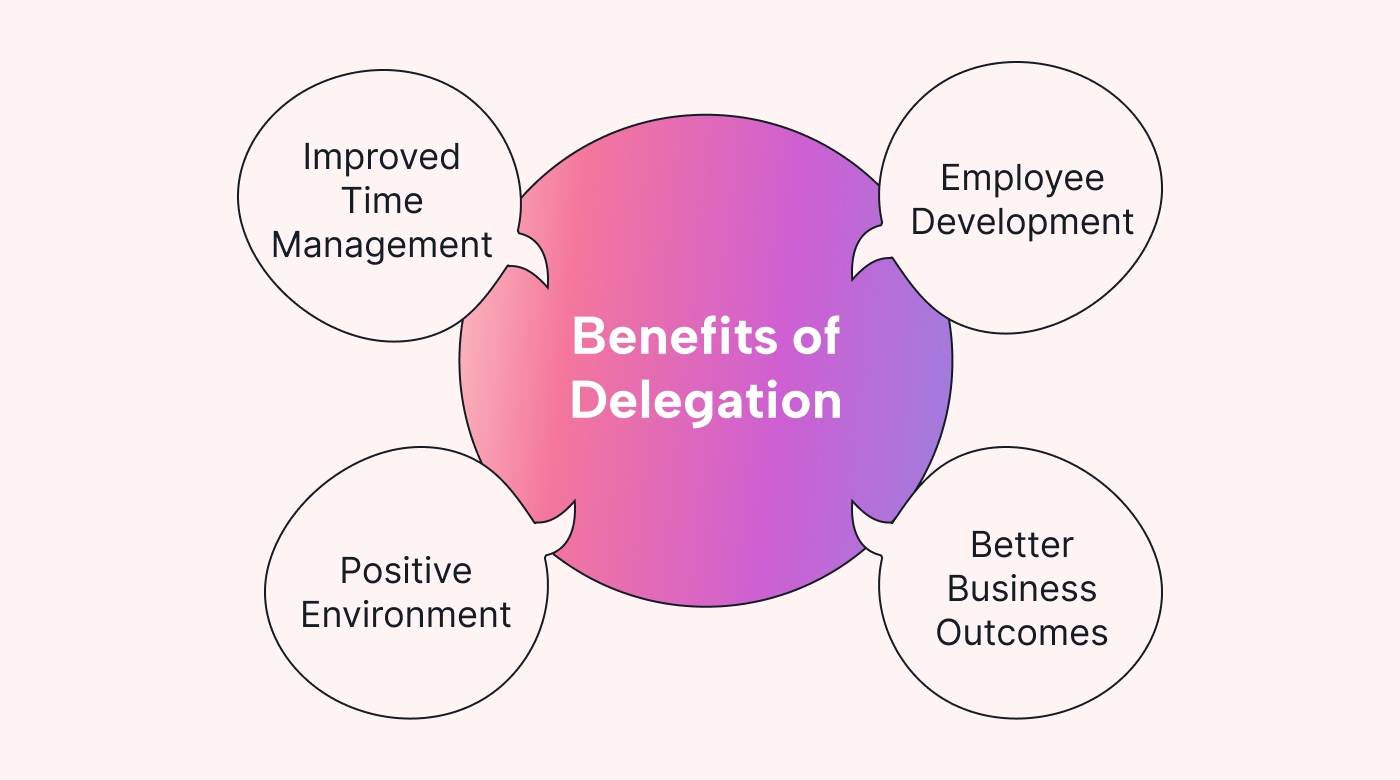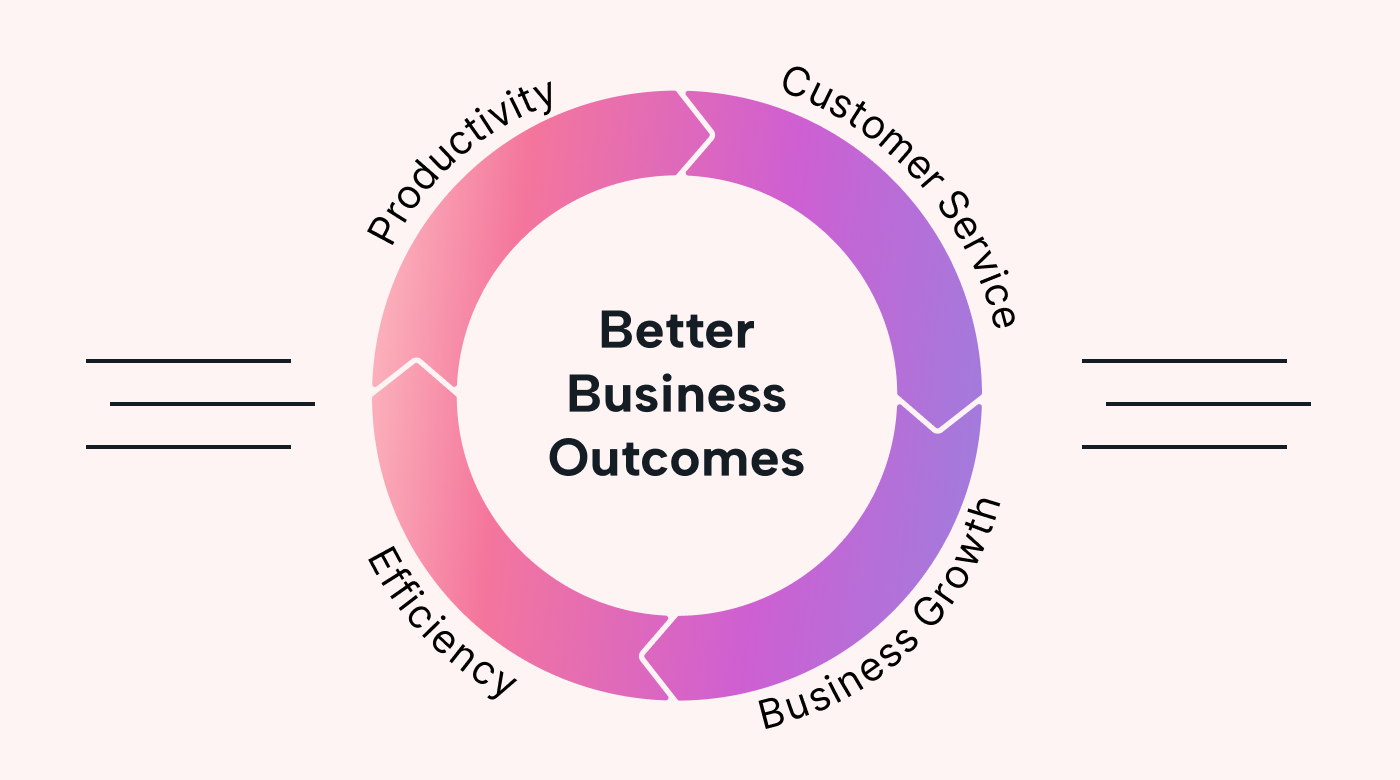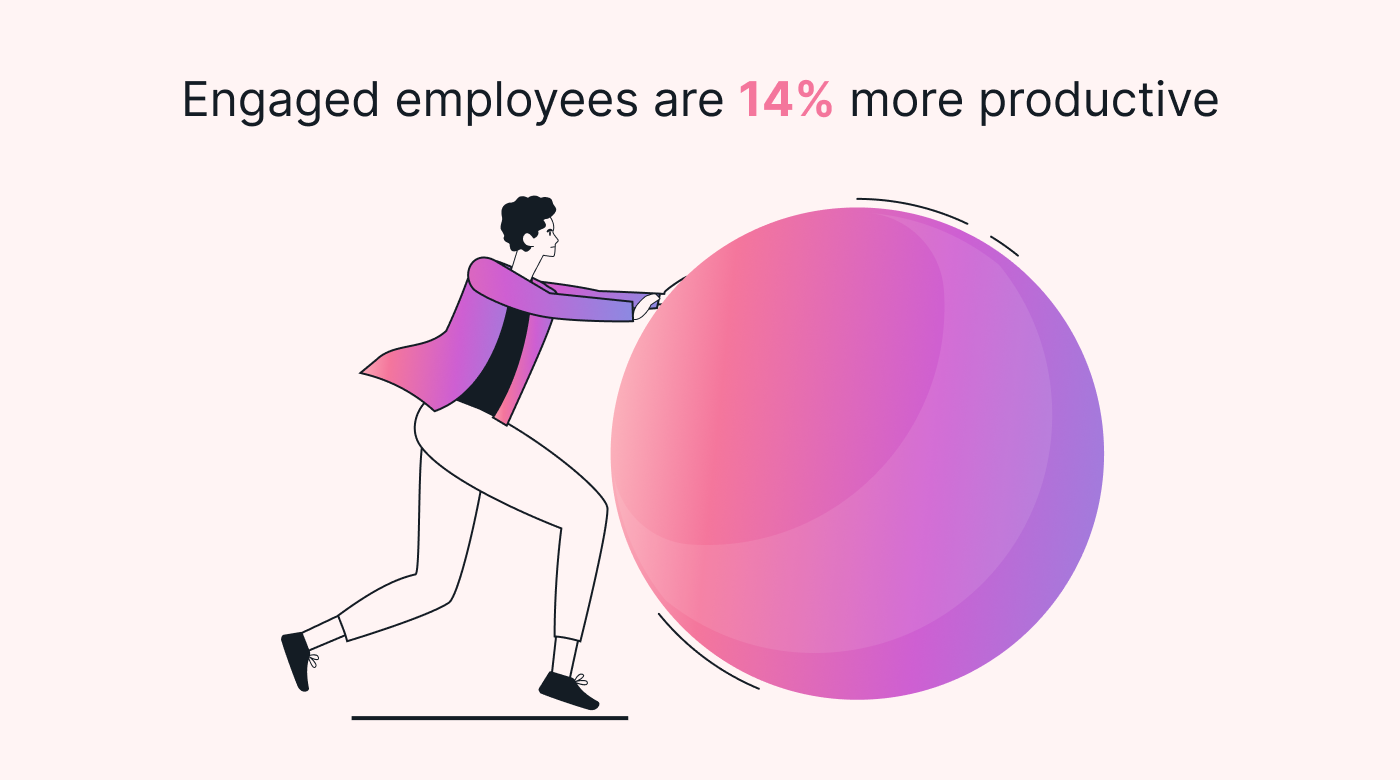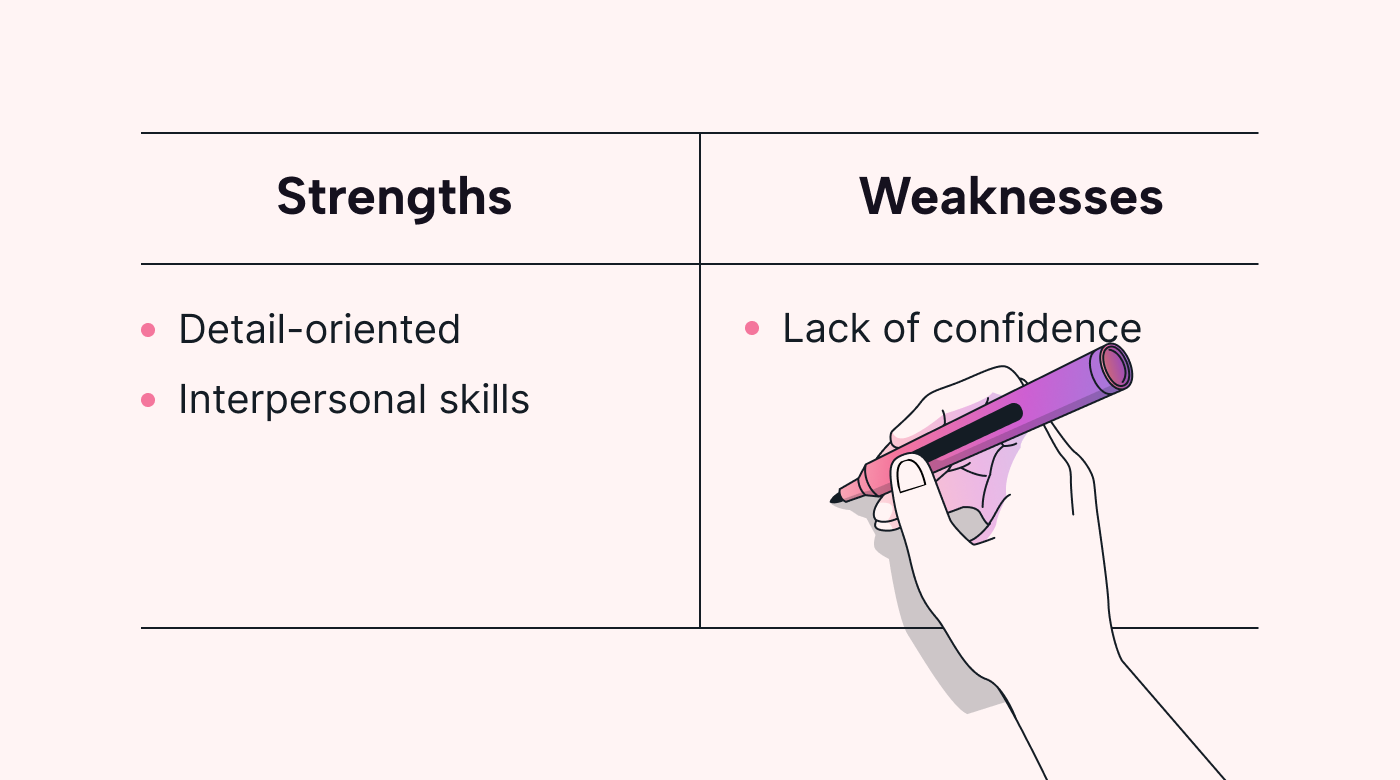Do you have a hard time balancing your workload? Prioritizing your tasks? Getting everything completed on time?
If so, you’re not alone.
Balancing a workload that leads to successful task completion, higher customer satisfaction, and a healthier bottom line isn’t necessarily easy.
But it can be done.
If you are ready to consider changing your approach, it’s time to think more about the benefits of delegation.
In this post, you’ll learn what delegation is and why it’s important for your business. You’ll also discover the four major benefits of delegation and some strategies to help you implement it successfully.
Ready? Let’s go.
What is delegation, and why is it important?
Delegation involves handing over certain tasks or responsibilities to an employee to carry out.
 |
For anyone running a business or managing a project, delegating responsibility is critical to success.
As a manager, you shouldn’t try to do everything yourself. After all, you already have enough responsibility with overseeing the project, staying on schedule, and finishing the work before the deadline. So, trying to do the work yourself would only create additional stress.
Chathurika Prabodani Gunathilaka is a project member for Cammes, an IT company based out of Sri Lanka. Gunathilaka notes that managers should not try to control every aspect of a project but “...focus on delegating the right tasks to the right team members. The team will get the maximum output from a collective effort.”
As a manager, effective delegation can help you maximize your team’s collective output.
Here are some additional reasons you should give it a try:
What are the benefits of delegation?
Delegation provides four distinct benefits in the workplace.
 |
1. Improved productivity
Effective time management is challenging in almost every business. Managers are tasked with multiple responsibilities, which often vary depending on the day, project, and available personnel.
Delegation allows you to organize tasks and responsibilities based on priority. You can focus on your most important items by shifting the less important tasks to your employees.
Delegation also prevents you from taking on too many responsibilities. Managers who are overwhelmed are susceptible to increased stress.
And unchecked stress can lead to lower-quality work, missed deadlines, and unhappy customers.
2. Employee development
Delegation does more than simply take items off of your to-do list.
It allows you to identify employees with the necessary skill sets to take on new roles. It also shows you which employees have skills they need to work on.
As you start to delegate, you will identify employees with potential for advancement, promotion, or management positions.
Delegation is also a critical component of building trust between managers and employees. A recent Gallup poll found that only 21% of employees reported having full trust in their managers or supervisors in their current position.
 |
Employees who are entrusted with further responsibilities gain confidence and develop new skills. Learning and mastering new skills often leads to increased investment and engagement in their own roles within the company.
Employees who feel empowered also feel encouraged to collaborate, ask questions, and request feedback.
Delegating tasks also encourages new opportunities for creative and innovative thinking. Your team may discover a new method or approach due to the different perspectives and insights brought to the task.
3. Better business outcomes
Delegation is one way to support employee development, which leads to better business outcomes, including improved efficiency, business growth, customer service, and productivity.
 |
Managers can improve productivity by delegating tasks they don’t need to perform themselves.
Delegation also improves customer service. For example, a real estate agent who is strapped for time may delegate the task of responding to client inquiries. An assistant who takes on this task may be able to respond more promptly, leading to higher client satisfaction.
Employee development and engagement also have an impact on productivity. Employees who feel connected to their company’s mission and goals tend to work harder and more efficiently.
Businesses that focus on employee engagement are 14% more productive than businesses that don’t.
 |
Now you know how delegating tasks and responsibilities can benefit you, your employees, and your business.
Here are some strategies to help make your efforts successful:
Strategies for delegating effectively
As you plan how to implement delegation in your workplace, consider how the strategies below will help you improve your effectiveness.
Define the objectives
The first step toward successful delegation is to identify exactly what you are going to delegate.
 |
Take the time to define your priorities as a manager. Which tasks do you simply need to complete yourself? Which ones can be assigned to others?
Once you know which tasks you want to delegate, identify the tools needed to achieve the task. Are there additional materials that the delegatee will need?
Once the objective is defined, determine its timeline. Know which steps need to be completed and when.
Identify the delegatee
You have selected the task or responsibility you want to delegate. Now it’s time to find the right person to assign it to.
Think about your employees. Consider their strengths and weaknesses. What can each of them bring to the task?
 |
Try not to skip this step. Employees who actively use their strengths in their jobs feel six times more engaged in their work.
Tap into their strengths and watch their confidence — and potential — soar.
Communicate consistently
You’ve identified the task and chosen the employee best suited to carry it out.
Now it’s time to communicate your expectations directly to them.
Start by telling the employee why they have been chosen to take on the task or responsibility. Tie it in directly to their strengths and why they are the best fit for this role.
Then, clearly outline the task, including all the roles and responsibilities involved. Don’t forget to explain why this task is important to the company and how it will help your customers.
Set a deadline and schedule times to check in.
Keep your door open so your employee can ask questions, get clarification if needed, and report their progress.
Decide how you will measure the employee’s progress and determine how they will be held accountable for the task.
When the task is completed, evaluate the result. Was it successful? What would you do differently next time? Are there other opportunities for this employee to take on other responsibilities?
Finally, lather, rinse, and repeat.
Make it seamless
Successful delegation is more likely to occur when managers have the tools they need to be successful.
In a remote workforce, management’s ability to delegate responsibilities and track progress is invaluable.
For example, the team at Sparkmate wanted a system that would allow them to automate strategies and delegate tasks to team members. Morgan Pellisier, a co-founder, found that by switching to the Motion app, they were “...able to delegate more easily than before. So things do not rely a hundred percent on me.”
Not only does Motion allow for seamless delegation, but the app also increases productivity by 137%.
All the more reason to give it a try.
Three examples of great delegation
If you want even more inspiration, check out these examples of delegation at its best:
Steve Jobs, Apple
Steve Jobs may have been one of the most influential and innovative leaders in history. Although he was notoriously difficult to work for, Jobs also realized he could not do it alone.
“It doesn’t make sense to hire smart people and tell them what to do.
We hire smart people to tell us what to do.” Steve Jobs
Jobs built one of the most successful companies in the world by trusting his employees and delegating responsibilities.
Richard Branson, Virgin
Richard Branson offers another perspective on delegation. When he first started out, he struggled to hand over the accounting division of his business. But because he didn’t have a strong accounting background, he ultimately hired someone to support him.
“He shared our vision and in some areas he knew better than we did how to make it a reality. From our experience working with him, we learned that if we really wanted
to grow our business, we’d have to delegate.” Richard Branson
And his strategy worked. His company is now worth an estimated $4 billion.
Jessica Jackley, ProFounder
Jessica Jackley co-founded two successful businesses, Kiva and ProFounder, aimed at helping entrepreneurs.
“As all entrepreneurs know, you live and die by your ability to prioritize.
You must focus on the most important mission-critical tasks each day and night,
and then share, delegate, delay or skip the rest.” Jessica Jackley
Jackley’s approach led her to her current net worth of $5 million.
Delegation is even easier with Motion
Delegation is a soft skill that will serve you well in your managerial career. With the proven strategies outlined here, even the busiest business managers can start to delegate successfully.
Start by identifying one task or responsibility you would like to get off your plate and define it as clearly as possible while also tying it to the company objectives. Then, match it to the person you think is best suited for it.
That’s delegation in a nutshell.
To make delegation almost second nature, try Motion. The app helps you assign tasks and responsibilities, and communicate with your team more effectively.
Try it out for free today to see what it can do for your team’s output, productivity, and morale.






